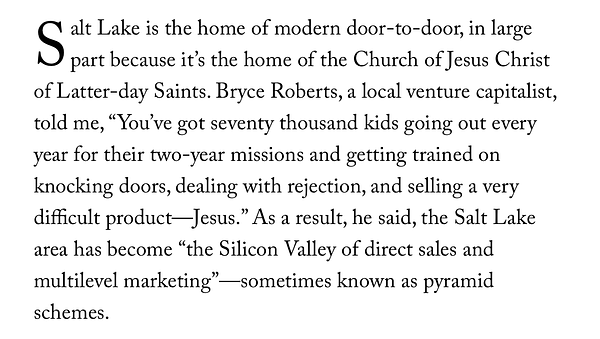TLDR: David Clark has successfully fought a rearguard action to save the bulk of the CCCFA, which will help avoid plugging extra leverage into a housing market already bursting at the seams with cheap money.

Clark wins rearguard action to keep most of CCCFA
Commerce Minister David Clark has managed to fight a rearguard action in Cabinet to save the bulk of the Credit Contracts and Consumer Finance (CCCFA) Regulations, arguing a wholesale wind-back of the rules would leave some homebuyers exposed to unaffordable loans and give banks a regulatory free kick over non-bank rivals.
Officials actually suggested either repealing the rules altogether or carving banks and/or mortgages out of the regime entirely in an effort to remove the noise around ‘bankable’ mortgage applications being rejected. Another option suggested was to reduce the penalties for bank lending officers. Some brokers and bankers have blamed the CCCFA’s tightening of mortgage affordability assessments for the ongoing 10-15% slump in house prices from their peak in November 2021, just as the CCCFA kicked in.
Clark yesterday announced a couple more concessions to rules around including credit card and buy-now pay-later payments in loan affordability assessments, but stopped short of the much wider carve out suggested by officials, who had conducted a study of bank and borrower complaints about the rules.
A chorus of complaints through the summer from banks and brokers about ‘borrow ready’ home buyers being rejected because of their eating out and savings habits led to an urgent review and an initial round of tweaks announced in March. This first tranche of changes removed savings and investments as essential spending in affordability assessments and wound back requirements for more intrusive inquiries about spending habits.
But these tweaks were always seen as the first step while a fuller review was conducted. That was completed and came back to Cabinet in July. It had to consider whether to either gut the CCCFA or even repeal it. Clark succeeded in keeping the bulk of the Act’s regulations, which were designed broadly to stop personal loan, car loan, credit card and bank lenders from loading customers up with unaffordable loans.
Officials clearly wanted to scrap much of CCCFA
Officials said in a Regulatory Impact Assessment issued with the Cabinet minute and papers that were published with the decision that the CCCFA rules that began from December 1 had led to some unintended consequences, including the rejection of mortgage applications that were essentially ‘bankable’ or ‘loan ready.’
They did not specify a number or scale of the unnecessary rejections, but pointed to bank estimates of 6-7% of borrowers who would previously been approved being rejected because of the rules. They also pointed to lenders saying the rules had increased the time take for application processing by 50%.
They also pointed to Centrix data showing the ‘conversion rate’ of home loan ‘enquiries’ fell from 38.4% in November 2021 to 34.9% in December 2021, suggesting around 9% of borrowers who would have gone on to receive lending in November no longer received a loan in December. Officials said this equated to an extra 14,000 to 21,000 home loan borrowers missing out each year.
Centrix data also suggested about 14% of previously qualifying personal loan applicants no longer received loans, with 35% of previously qualifying credit card applicants no longer received credit cards.
Officials were careful not to conclude the CCCFA was completely to blame.
“It is difficult to determine whether borrowers who were declined were
unnecessarily declined, or whether there were actually significant affordability risks
(and therefore the borrower should have been declined under the responsible lending principles).“There is also evidence that for some types of credit contracts, like temporary
overdrafts, borrowers have been dissuaded by the more onerous process itself, which is not reflected in declines in conversion rates (since an enquiry would not have been made to the credit reporting agency at all).” Officials in the RIS.
One quirk was that Centrix data found applicants with high credit scores were more (not less) likely to be rejected than those with lower scores - “the opposite of naïve expectations that low credit score (i.e. ‘high risk’) borrowers should be more affected.”
Range of options included carve-outs and full repeal
Officials suggested five options, including:
doing nothing more than the March tweaks;
carving out specific types of lending, lenders or consumers “where there is a higher underlying risk of substantial hardship,”;
changing the specific rules around expenses, surpluses and exceptions;
lowering the penalties and liability regime for loan managers; and,
“repealing the affordability regulations.”
‘Give it time. Things are calming down’
Clark’s argued in the Cabinet papers in response that the March tweaks should be given more time to work, and that the initial kerfuffle was dying down as bankers and consumers became more familiar with the rules. He suggested the rules could not be blamed for all of the recent cooling in the housing market and that banks were doing just fine with the tighter rules.
“I consider that lenders are further refining their processes and consumers are becoming more familiar with the new requirements. This can be seen through lending complaints to the Banking Ombudsman falling 21% in the March 2022 quarter.
“In addition, while housing market headwinds and rising interest rates mean that banks have commercial incentives to continue de-risking their loan books, we have seen bank loan assets grow to $531 billion in April 2022 and bank quarterly profits reaching a record $1.8 billion in the first quarter of 2022.” Clark in Cabinet papers.
Clark said he concerned carving banks and/or mortgages out would likely harm consumer protection and reduce competition. He also pointed out banks had not wanted the original act to only target ‘high risk’ borrowers because they said then carve-outs were not workable or desirable.
“I anticipate that the initial changes together with further changes to address issues with certain provisions in the CCCFA regulations will sufficiently address the drivers of any unintended impacts, and as described above, there are already signs of improvements in lender processes and consumer experiences.
“This is reflected in recent data shared by the Banking Ombudsman, which indicates that, after an initial spike following the 1 December changes, lending complaints fell 21% during the March 2022 quarter. The biggest change has been in home loan complaints, which are down 37% after a rise of 19% the previous quarter. Complaints about personal loans also fell 18%, while credit card complaints remained steady.” Clark.
‘Two-tier system risked discrimination and gaming’
Clark also argued carving banks, mortgages or ‘low risk’ borrowers out of the CCCFA risked those borrowers and firms outside the regime being discriminated against and out-competed by the ‘favoured’ sectors and products.
“For example, I am informed by financial mentors that even where borrowers use lenders with low default rates and ‘low risk’ credit such as mortgages, an unexpected expense may find them going without essentials or living off food parcels in order to meet payments. I consider that this risk is exacerbated by a higher than normal interest rate environment, where people refinancing will face ongoing servicing costs higher than they have historically.
“This would suggest that whilst targeting the scope of the affordability regulations to exclude mortgage lending would increase access to credit to first home buyers, it would likely come at the cost of consumer protection and result in an increase in this kind of substantial hardship.
“Targeting borrowers with particular characteristics (e.g. low credit scores, or low income) could incentivise lenders to refuse lending to those borrowers, even when it might otherwise be affordable. This would exacerbate existing barriers to them obtaining safe credit and may lead them towards less scrupulous lenders.
“Similarly, specifically relaxing affordability requirements for a lender’s existing borrowers (one of the options discussed in the Report) could lock vulnerable borrowers into predatory lenders and reduce competition.
“Whilst further changes to target the scope would address the issue of the Regulations impacting borrowers who might not be considered high-risk, I am concerned that any further changes to target the scope of the affordability regulations would significantly reduce consumer protection and that the benefits of doing so would be marginal.” Clark.
Banks say Clark ‘wrong’ not to carve them out
NZ Bankers Association CEO Roger Beaumont said Clark took the wrong option presented to him in the report and should have instead targeted affordability regulations at riskier lending and lenders.
“The best option presented to him would have been to target affordability regulations to riskier lending and lenders, as well as make changes to the penalties regime.
“Targeting affordability requirements to support those most at risk would provide them with appropriate protections as well as freeing up lending for those who can afford it.” NZBA’s Roger Beaumont
My view - Deliberately or otherwise, brokers and banks found the CCCFA changes a convenient scapegoat from October to February as they scrambled to dampen down their higher LVR lending to meet the Reserve Bank tightening of LVR speed limits in October. It’s much easier for bankers blame the Government for ‘crazy red tape’ than the Reserve Bank, which gives them their licenses to lend and profit.
Clark fought well not to see the baby thrown out with the bathwater. Aotearoa-NZ’s housing market could do with as much deleveraging as possible, and the CCCFA was just one element in a required tightening of belts.
There was an ugly whiff of entitlement among many borrowers used to getting fresh batches of leverage to buy multiple properties, and among many brokers, agents and vendors used to their ‘birthrights’ of ever-rising house prices.
The party ended because it got too rowdy and someone rang noise control. The gracious thing to do would be to go home quietly and not yell insults at the noise control officer. More than a few will thank the grownups later for not having that 17th drink and the pounding hangover that followed.
Elsewhere in business, finance, the economy and markets
Milk frozen - Trade in A2 Milk shares on the NZX was halted after an unexplained 8.6% spike in its share price to $5.42 and pending an announcement. The AFR reported A2 Milk may be about to get approval to export its infant formula to the United States, but A2 said that was not certain. NZX
Rates up - The Reserve Bank of Australia hiked its cash rate by 50 basis points to 1.85% this afternoon, which was its third consecutive 50 basis point hike and in line with market expectations. However, the Bank raised its inflation forecast for this year to 7.75% from 6% previously and cut its growth forecast to 3.25% from 4.25%.
Heads up - The United States killed al Qaeda leader Ayman al-Zawahiri with a missile strike from a CIA drone in the centre of Kabul today. Reuters
Watch out - Chinese fighter jets buzzed the median line in the Taiwan Strait last night ahead of the arrival in Taipei of US Speaker of the House of Representatives Nancy Pelosi. China has threatened military action and US President Joe Biden advised her not to go. Even Taiwanese officials are not thrilled. Reuters
Heathrow halt - British Airways stopped selling tickets on flights to the rest of Britain and Europe for the next two weeks from Heathrow because of a 100,000 per day cap on passengers imposed by the airport amid historically high levels of cancellations, baggage mishaps and delays because of Covid-related staff shortages. BBC
Comment of the day on The Kaka
UBI beats a jury-rigged, partial and targeted one-off payment
“Just call the cost of living payment a stimulus payment, pay it to everyone and then the worriers can stop worrying about it. 1. it's not a lot of money, so it looks inadequate as an energy/food fix, but as a bonus stocking stuffer, bravo! 2. admin problems of 1% isn't a bad metric, but you look a lot better if you just say, Kiwi citizens? We feel for you. Here you go. Anywhere in the world! When I woke up I didn't think I'd be praising the US social safety net - lol - but that's the way they did it, and it seems..... benevolent?” Duane in yesterday’s Pick o’ the links.
Some fun things

Ka kite ano
Bernard

















Rearguard action saves most of CCCFA